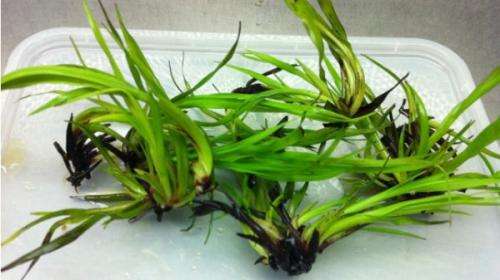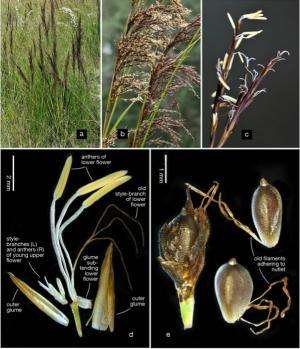Fragile seeds sprouted in-vitro

Tissue culture technology is helping scientists to grow a native sedge notoriously difficult to germinate naturally.
UWA researcher Dr Shane Turner is based at Kings Park Botanic Gardens and part of a team that successfully cultivated the native sedge, Gahnia radula, in-vitro.
Dr Turner says natural germination of G. radula could take up to three years, but using in-vitro fertilisation, researchers are generating up to six new plants per seed, every six to eight weeks.
A small, tufted plant endemic to south-eastern Australia, G. radula is commonly found in woodlands and important for its ability to suppress weeds, prevent soil erosion and provide food and shelter for wildlife.
It is a popular species for revegetation projects, like mine site rehabilitation, because of its resistance to root disease and tolerance to drought.
But Dr Turner says the plant is extremely difficult to propagate because of low and infrequent seeding, and the failure of sown fruits to germinate.
"On that odd occasion when we do get quality seed and try to sow and germinate it, then by-and-large nothing happens whatsoever."
Cracking the seed cap
Dr Turner says little is known about the plant's resistance to germination, but the seed's 'nutlet' could be part of the problem.

"The true seed…is locked up in an endospermous cap, which is very small, a bit like an olive pip, and seems to restrict the ability of the true seed to germinate," Dr Turner says.
"Using tissue culture, we can break open that cap and take out the true seed, which is quite delicate and somewhat fragile.
"When we surface sterilise it, we can actually put it in a tissue culture environment and give it some plant hormones, and they will start to germinate quite readily.
"Once we have it in that environment, we can give it lots of plant hormones that tell it to grow lots of leaves and shoots.
"When it's up and going, we can take each of those shoots off every couple of weeks and grow that in its own right, in another container."
Dr Turner says the research is about finding solutions to problems and then offering that knowledge to people working in the field.
He says tissue culture technology is now used in WA nurseries to propagate species for mine site rehabilitation.
"From a restoration or rehabilitation perspective, it is very important to be able to propagate [plants] in reasonable numbers," he says.
Provided by Science Network WA



















